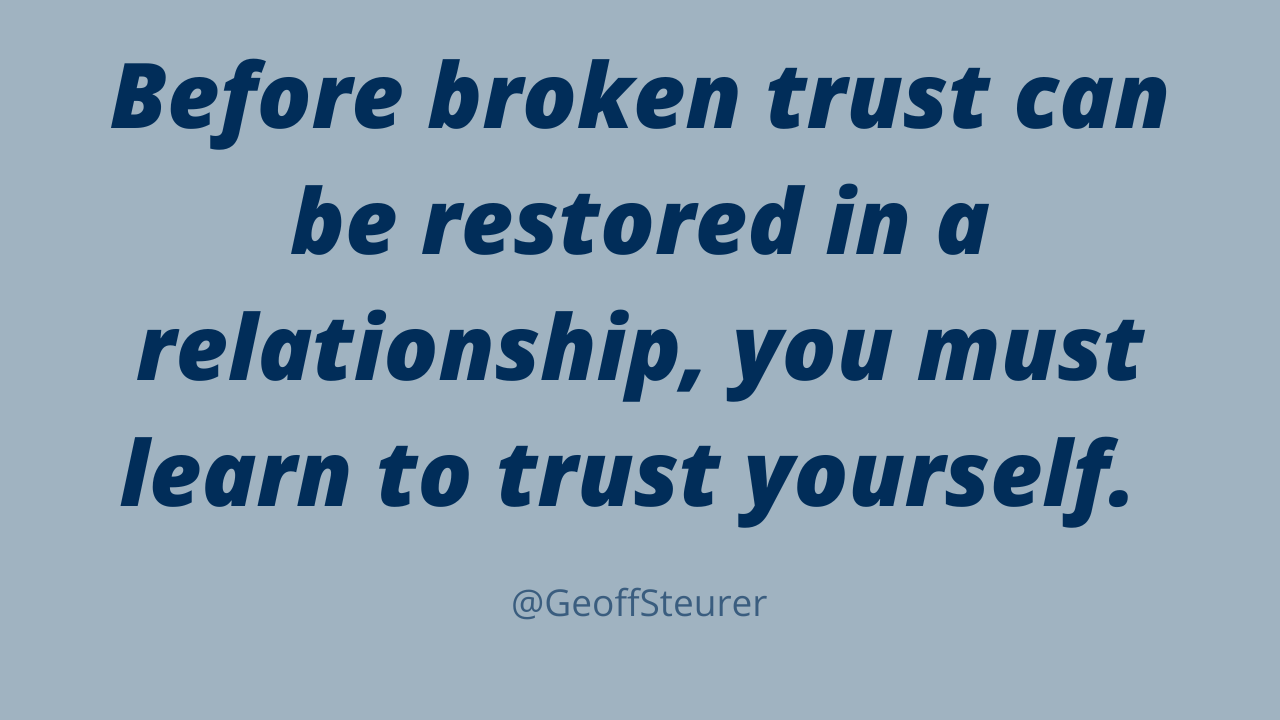
Q&A with Geoff: How Do I Trust My Husband When He Won’t Stop Hurting Me?
Question
My husband and I have been married for 40 years. He was introduced to porn through another Boy Scout, and it has been a problem off and on all his life. He hid it from me, but I’ve caught him multiple times after finding things on his phone, finding it on the search history on the computer, or walking in when he’s watching it.
Something I’ve observed is that when he is looking at porn again, he also finds a scantily dressed woman or the prettiest woman in the room and stares at her, with me right next to him. I have told him how hurtful it all is.
We’ve tried counseling a couple of times after I set it up. One time he yelled at me and the counselor and was very angry another time. He told me that he didn’t like the second counselor because she talked too much. He’s done nothing to take care of it on his own except to confess a couple of times to the bishop about his actions. He avoids the topic and if I bring it up, I’m usually the bad person. I’m so worn down. He continually tells me that I don’t trust him and that’s not right. But he’s broken the relationship so many times that I don’t know how I can trust him.
Answer
I can hear the exhaustion and defeat after decades of living with these difficult challenges. Naturally, many of your efforts have been directed at getting him to extinguish these hurtful behaviors. You’ve unwittingly been transformed from a wife into a probation officer trying to create compliance. Naturally, you long to trust your husband.
However, it’s important to recognize that before broken trust can be restored in a relationship, you must learn to trust yourself. Let’s discuss what that looks like.
You’ve just outlined a persistent and long-standing pattern of behavior that has damaged your marriage. Not only is the secret pornography use creating damage, but the hiding, aggression and refusal to care about your pain are also deepening the wounds. You want to stop hurting, so you seek safety by trying everything you can think of to get him to stop. In the process, you get pulled deeper into a dynamic of being blamed, rejected, and criticized. Sadly, the responsibility gets transferred to you by your husband.
Trusting yourself begins when you recognize that you’re not responsible for stopping his behaviors. It happens when you refuse to participate in this pattern of blame any longer. It’s when you call on your courage and pay attention to what you need right now. You know this pattern isn’t working for you and it’s time to do something different. You can’t count on him to help you out of the pattern, but that’s OK. One person can change a pattern.
Oliver Burkeman, author of “Four Thousand Weeks,” reminds us, “When you grasp that you’ll never get free from reality, you finally become free in it — free to focus on the hard things, instead of the impossible ones.” Getting your husband to stop has been impossible, so accepting that reality will free you up to do the hard things involved in changing how you respond to him.
You might be waiting for him to care enough to get on the same page as you so you can work together on building a healthy relationship. Please recognize that if he continues to fight you on doing something different about these patterns, there can’t be any significant relationship healing. It’s common for individuals who are caught up in compulsive or addictive patterns to be desensitized to their partner’s pain. And, if we can’t care about our partner’s pain, we can’t care about the relationship.
I understand how tired you are initiating conversations to get him to care about this issue. You want him to see how painful this is for you. This is a totally normal reaction we have in our closest relationships. We want our loved ones to see how they impact us so we can move closer to them. It’s agonizing to recognize that your best efforts at carefully constructing conversations, seeking outside support for the relationship, and finding resources still doesn’t help him care.
Thankfully, you are not powerless to get help for yourself. You have been motivated to get out of this pain for a very long time and I hope you will continue to use that energy and motivation to bind up your wounds. It’s time to prioritize your healing by seeking the support you’ve needed for a long time. It’s common to be isolated when facing betrayal and there are compassionate and supportive people who are willing to help.
I’ve worked with countless betrayed spouses who feel disloyal by seeking support for themselves. They are fixated on the relationship and want to improve things together. However, the healing in this relationship may have to be staggered. Of course, I have no idea if he will ever do anything different, but you don’t have to keep feeling this way. Trusting yourself happens when you accept the reality of what you’re experiencing and seek the appropriate support.
When he accuses you of not trusting him, go ahead and agree with him. Make it clear that trust is earned through keeping commitments and changing unhealthy patterns. Of course, you might trust him in some areas, but not in others. Trustworthiness is not an automatic entitlement. It’s earned in every relationship no matter how long we’ve known the person. Please recognize that not trusting someone doesn’t mean you’re a bad person. It means you are discerning that something isn’t safe and acting accordingly.
You’ve held on, tried, pled, waited and advocated for a better way. It’s OK to take care of yourself so you can determine what’s best moving forward. Trust that you can get clarity for your life as you confront these unhealthy dynamics that have impacted you and your marriage. Trust that your body, mind and spirit, will give you clear signals about where to go, what to say, and what to do.



